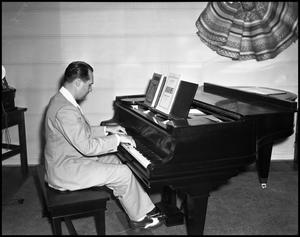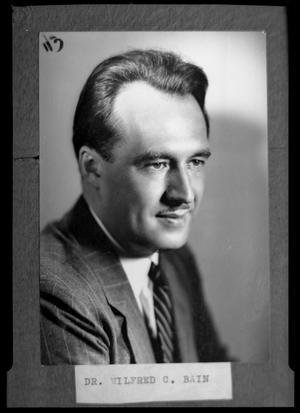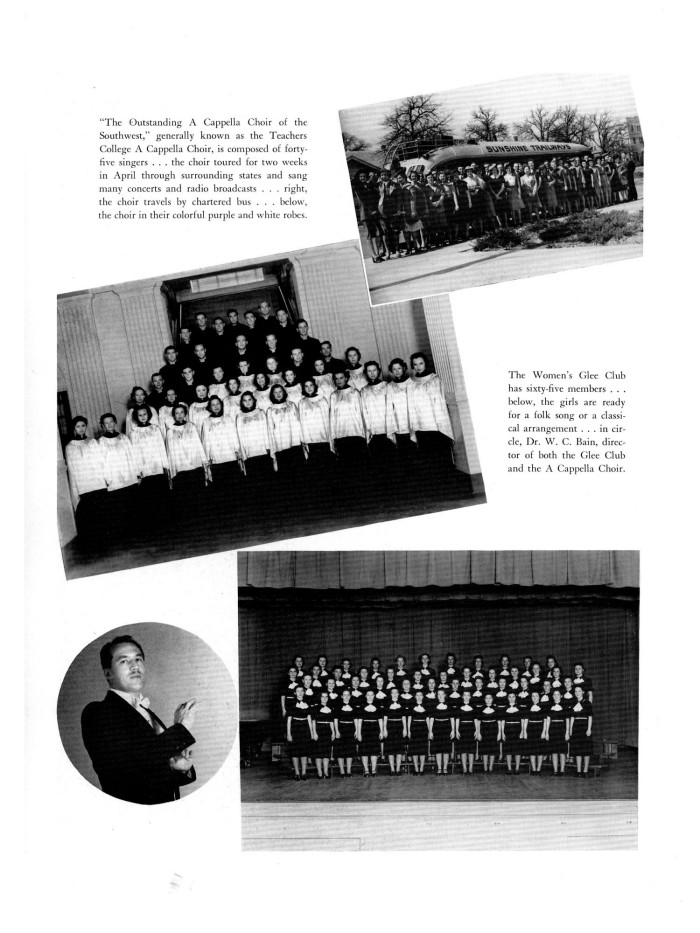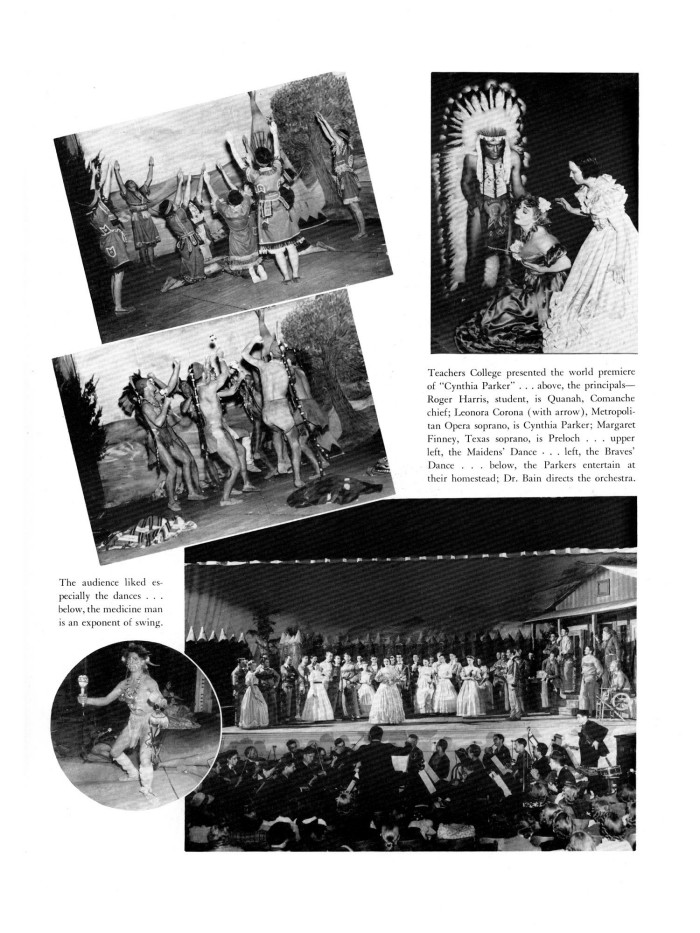Students on campus will find Bain Hall located on Highland Street and used primarily by music students as practice rooms. The structure was originally built in 1947 as part of the Quadrangle, a dormitory for men. It was renovated and renamed in 1991 to honor the former Dean of School of Music. Dr. Bain has been credited with building a strong foundation for the development of today’s College of Music.
Wilfred Conwell Bain was born on January 20, 1908, in Shawville, Quebec, the son of James Alexander Bain and Della Hawn Bain. He came to the United States, with his parents, in 1918. He would graduate from Cattaraugus (New York) High School in 1925.
He was educated at Houghton College, where he earned a bachelor of arts degree with a major in music and a diploma in piano performance, in 1929; an A. M., was earned at Westminster Choir College in 1931; he received a Masters and Doctorate, in Music Education, from New York University in 1936 and 1938.
Dr. Bain rapidly rose in academic music positions throughout his career. He worked as the head of the music department at Southern Wesleyan University (central South Carolina) 1929 to 1930. In 1931, he was the head of voice and choral music at Houghton College. He joined the North Texas State Teachers College (now the University of North Texas) in 1938 as the head of the Department of Music. He learned of the opening for the head of the Music Department after meeting Gladys Kelso, a piano instructor at North Texas, at New York University. He expressed his feelings about coming to Denton in an oral history interview, “…I can’t tell you how welcome everybody made me feel. I fell in love with the place immediately, because these people were outgoing and they were considerate.” During his time at UNT, the students studying music grew from twenty-five with four full time faculty members to four hundred and fifty students and an expanded faculty to instruct them in a full program of study. He established the requirement that music majors had to meet an ensemble requirement – each student had to be a member of a choir, band, or orchestra. He also founded the A Cappella Choir during his second semester at North Texas. When Dr. Bain arrived, the music facilities consisted of a former president’s home (Kendall Hall), the Orchestra Hall, and another cottage used as classrooms. The Music Hall would be built in 1940. Among the faculty he hired were Frank McKinely (choral music); Frank McAdow (marching and concert bands); Helen Hewitt (musicology and organ); Silvio Scionti (piano) and Mary McCormic (opera). In 1939, Julia Smith, an alumna of UNT, asked Bain if he could produce her first opera at UNT. “Cynthia Parker” helped placed UNT and Bain in the national spotlight. Due to restrictions on travel during World War II, he initiated a plan for the orchestra performed a radio program.
1947 saw significant changes in Wilfred Bain’s life. He became a naturalized United States citizen at the Federal Court in Sherman, Texas. Dr. Bain would also leave UNT in 1947 to join Indiana University as the dean of that university’s School of Music. Dr. Bain claimed that leaving Denton was hard. “I was very happy and very pleased to be there and riding, shall I say, the crest of a wave of popularity and endeavor, and everything seemed to be at a level that would be completely attractive.” He left due to problems acquiring necessary items and plans for growth for the department. He placed the blame on a Board of Regents shared with other teachers’ colleges that was in use during that time. He would hold the dean’s position at Indiana University until 1973, when he retired. He held the position of professor emeritus of Indiana University from 1973 to 1997.
Dr. Bain died, at the age of 89, in Indiana, on March 7, 1997.
The quotes are from an oral history with Dr. Bain that was conducted by UNT College of Music Dean Marceau Myers on December 12, 1978.








Leave a Reply